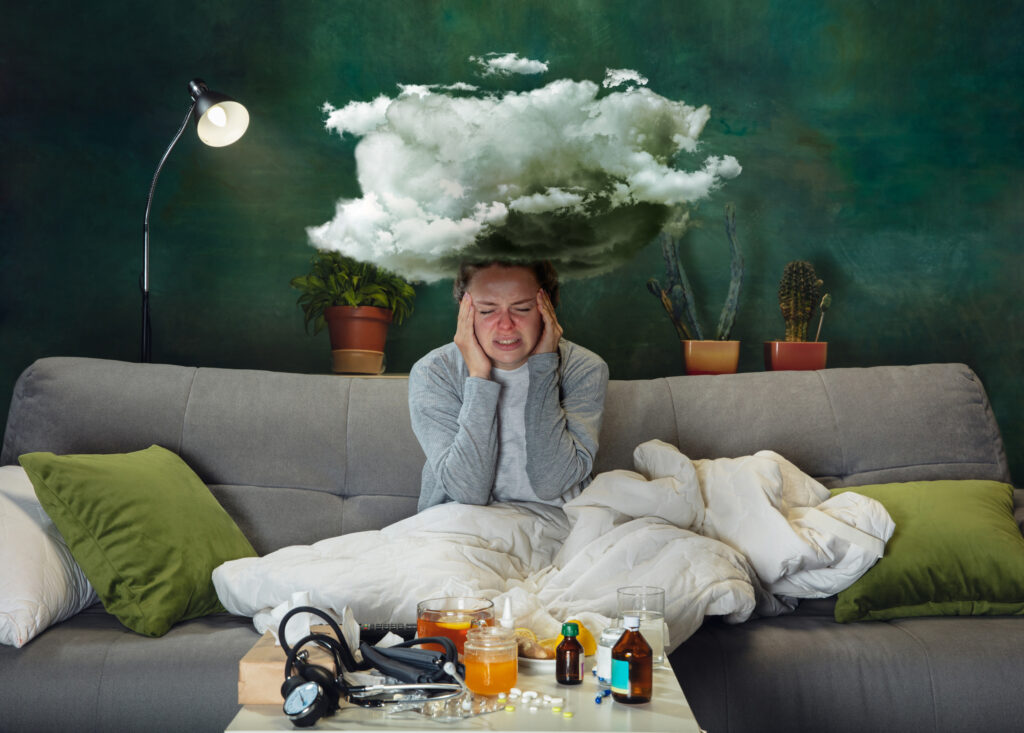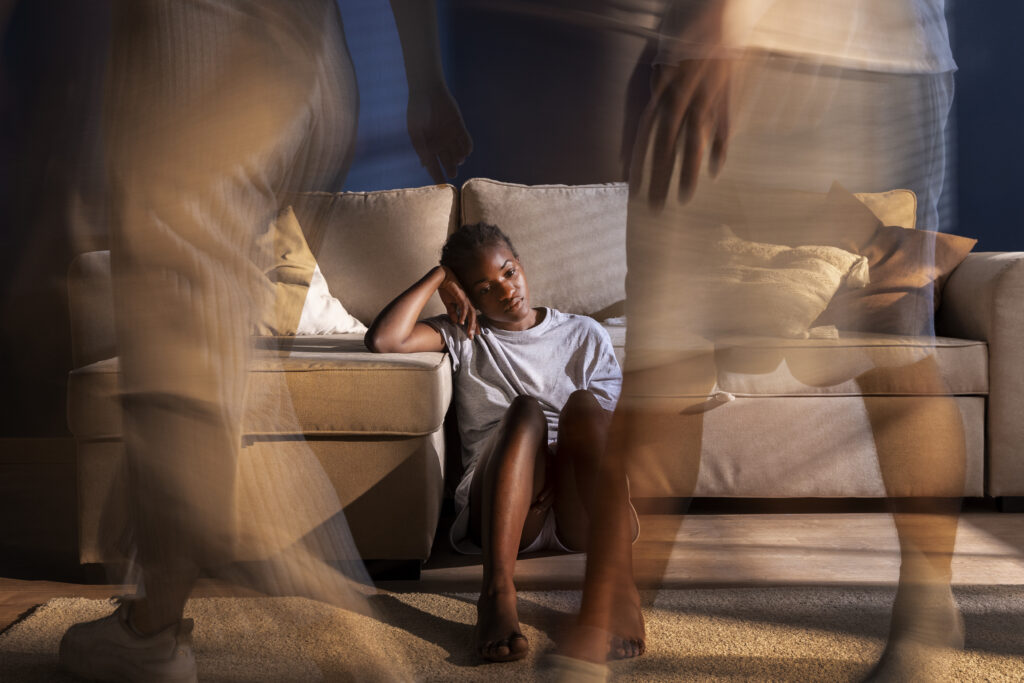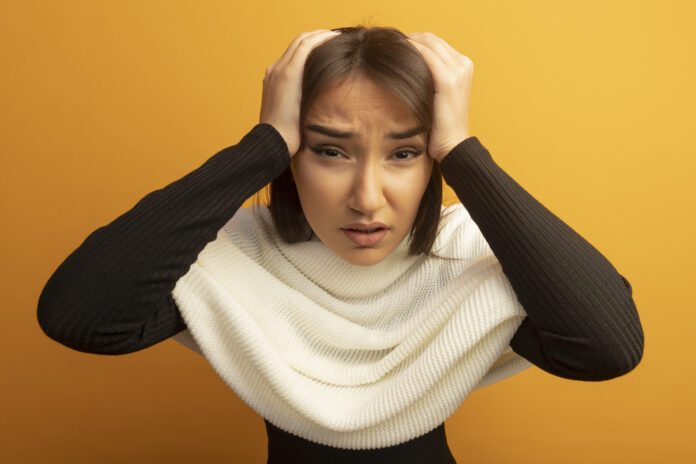Are you dealing with anxiety? Do you search for simple strategies to manage anxiety symptoms immediately? There are such ways that can help you manage immediate symptoms, as well as long-term strategies also found that help combat recurring issues.
Understanding to Anxiety Your body responds to real or perceived dangers in many ways, anxiety is a way your body adapts to respond to danger. People often confuse the term anxiety with a general feeling of unease, worry, or nervousness. However, these two have differences. Feeling anxious and having an anxiety disorder are two different things, whereas the latter one has several conditions.
Your body responds to real or perceived dangers in many ways, anxiety is a way your body adapts to respond to danger. People often confuse the term anxiety with a general feeling of unease, worry, or nervousness. However, these two have differences. Feeling anxious and having an anxiety disorder are two different things, whereas the latter one has several conditions.
Immediate Strategies to Cope with Anxiety
If the anxiety you have is disturbing your focus or tasks and belongs to a sporadic category, you need some natural remedies that can help you take control of the situation.
For instance, if you are worrying about an upcoming event and its management burden, you may have a type of anxiety that focuses on a situation.
Let’s read about some easy ways to cope with short-lived anxiety.
Change Your Thinking Pattern
Negative or stressful thoughts trigger your mind and distort the severity of the situation. You can adopt a way of challenging your fear about that situation that is thought of by your mind. Check their reality. See if they are true and search for the trick to regain control.
Deep and focused Breathing
Focused breathing practices help manage immediate feelings of anxiety. Breathing in for 5 minutes and breathing out for 5 counts for 6 to 7 minutes can make your nerves relaxed. This technique will slow your heart rate and you can easily calm yourself down.
This is an effective breathing pattern for anxiety management.
Aromatherapy Technique
Although more research is needed to prove the effects of aromatherapy on anxiety management, the researchers still believe that aromatherapy helps reduce feelings of anxiety to some extent. They may be in the form of a candle, incense, or an essential oil form. It can be in the form of natural scents such as sandalwood, chamomile or lavender that impacts soothing effects.
Practice Regular Workout
Leaving a situation and getting moving is the best option to stop anxious thoughts. Sometimes, focusing on your body and ignoring thoughts can help relieve your anxiety. Low-intensity workouts like yoga, walking, jogging, and tai-chi are the best ways to reduce stress and manage symptoms of anxiety. Some quick exercises play a role in boosting your mood and calming your mind.
Grounding Techniques
333 rules or journaling are referred to as grounding techniques for managing anxiety. These strategies are helpful and effective for calming immediate feelings of anxiety.
Journaling is the way, where you write down what makes you anxious and get it out of your head. This strategy will make anxiety less daunting. Feeling your thoughts in written form can help you take stock of your negative feelings in the immediate moment. Thus you can better understand the events and situations that cause anxiety.
Long-Term Techniques to Cope with Anxiety
Finding permanent treatment strategies to cope with anxiety can help you keep it in check. Therefore, if you have frequent anxiety attacks and it has become a regular part of your life, this article is for you. You can find many strategies in this article to manage anxiety symptoms but if you’re unsure where to start and which method is the right one, discuss these options with your healthcare professional who might suggest something that will be perfect for you. Let’s read about such techniques!
Learn about Anxiety

You can proceed to the recovery stage by learning about anxiety. Acknowledgement of anxiety and its effects or triggers helps you in the examination of flight-or-fight responses. That’s the way your body deals with impending danger. For example, if you have an anxiety disorder you may be triggered by some inappropriate situations that generally look harmless. Thus the education can introduce you to ways to promote control over anxiety symptoms.
Mindfulness Practices
Anxiety-provoking thoughts surround you and you feel anxious. Then mindfulness helps you to bring your attention back to the present moment to unhook your thoughts that may be unhelpful. Nowadays, mindful practices are becoming popular as these practices are beneficial for resolving a number of issues. You can use several platforms to develop a routine for mindfulness practices.
Relaxation Techniques
If you’re anxious about anything, you may have trouble relaxing, but knowing how to release muscular tension can be an effective way to manage the symptoms. These techniques are:
- Isometric relaxation exercises.
- Abdominal breathing.
- Progressive muscle relaxation.
Correct Breathing Techniques
Sometimes symptoms of physical anxiety are triggered by hyperventilation, a condition in which the carbon dioxide level goes down and the amount of oxygen in the blood. Carbon dioxide has a major role in regulating your body’s reactions to panic and anxiety.
Learning how to breathe from your diaphragm rather than your chest will safeguard you against hyperventilation if you are an anxiety sufferer. Try to expand your belly maximum as you breathe in. Placing your hand on your lower abdomen and the other on your chest while breathing will help you to make sure that you are breathing correctly. This also helps you to slow your breathing rate while feeling anxious.
Abdominal breathing is not easy for all. Therefore, you can try some other techniques that help you in managing anxiety symptoms. You can boost the carbon dioxide level in your blood by holding your breath for a few seconds.
Cognitive Therapy
Change in your belief and thinking patterns is referred to as cognitive therapy. For instance, people with social phobia can worsen the symptoms by thinking negatively such as ‘ everyone dislikes my speaking style’.
It’s profound by the beliefs that trigger negative thoughts which can lead to negative anxious feelings and produce negative behaviors. For example, let’s say to yourself that everyone likes you, this belief can make you feel worthwhile. If someone leaves your company mid-conversation, you may think, ‘This person is not interested in me’. This thought will make you anxious.
Cognitive therapy has different strategies to manage anxiety symptoms, including:
- Cognitive restructuring.
- Rational self-talking.
- Reality testing of negative thoughts.
- Attention training.cognitive challenging.
- Monitoring your thoughts.
- Challenging unhelpful fears and beliefs.
Behavioral Therapy
Behavioral therapy is also known as exposure therapy. It includes deliberately confronting your fears in order to desensitize yourself. Exposure will enable you to train yourself to redefine the fearful or dangerous effects of the situation.
The simple steps included in exposure therapy are:
- Imagine yourself experiencing the feared situation. Now check the level of your fear and ask yourself What are you afraid of?
- Go from most to least feared situations and set the standard.
- Work On your fearful; thoughts with small steps such as decreasing the distance between the feared situation and yourself gradually or increasing the time spent in the feared situation with the passage of time.
- Follow breathing and relaxation techniques. Strengthen yourself with coping statements to defeat the urge to leave and try hard to manage your anxiety symptoms.
- Appreciate yourself for facing the feared situation for a longer time.
- Repeating these exposure practices can develop confidence that you can cope easily.
When you get success for one, move to the next and tackle another feared situation in the same pattern.
Dietary Adjustments for Anxiety Symptoms
Magnesium is a mineral found in your diet that helps muscle tissues to relax. Magnesium Deficiency causes anxiety, insomnia, and depression. Add foods such as wholegrain. Leafy greens, low-fat dairy products, and fresh vegetables and fruits to get help in managing anxiety symptoms.
Stimulants, caffeine-containing drugs, and nicotine products trigger your adrenal glands and increase the production of adrenaline hormone, which is the main stress chemical. Try to avoid such things. Some other dietary products including artificial additives, salt, and preservatives should be avoided. Prefer unprocessed and fresh food to processed food whenever possible.
Identification of Your Triggers
You can identify certain triggers with the help of a professional medical officer. Sometimes it is easy for you to identify the triggers on your own but sometimes they’re not so obvious to recognize. Therefore, you need a therapist.
Common triggers of anxiety include:
- Chronic pain.
- Relationship, work, or other stresses.
- Side effects of medications.
- Excessive use of caffeine.
- Smoking.
- Exacerbation of past trauma.
- Withdrawal from drugs.
Suffering from different triggers is a common thing but their identification is one of the most important steps to deal with anxiety attacks.
- Try Therapy
- Use of Medications
In case of severe symptoms of anxiety, immediately contact your mental health care professional. He would prescribe certain medications with several directions depending upon the severity of your symptoms. Discuss your concerns with your doctor to devise an effective method to manage the symptoms promptly.
The most common medications include:
- Tricyclic antidepressants.
- Benzodiazepines.
- Selective Serotonin Reuptake Inhibitors (SSRIs).
- serotonin-Nor epinephrine Reuptake Inhibitors ( SNRIs).
Daily Meditation
Taking regular meditation helps train your brain to manage anxious thoughts. If you successfully practice meditation on a daily basis, you can defeat your feared zone of life. If you find it difficult to sit still for a longer time, try walking or yoga practices. Many apps are available that can help you online or physically in managing your anxiety symptoms.
Keeping a Journal
The habit of writing can lead your thoughts toward a healing pathway. Writing your emotional thoughts in a journal is an effective way to relax your mind and body. This is a calming process for many people. Journaling is associated with long-term benefits such as regular writing practices in a journal can help reduce anxiety, feelings of distress, and depression.
Keep Socializing. Researchers claim that social connectedness helps in becoming more resilient to stress in the long run.
Staying Active and Alert
Taking regular exercise, making strong positive bonds with people, and getting good quality sleep are great ways to stave off your anxiety. In addition, medical professionals in mental health departments have suggested that exercise, in particular, may influence positively and help you manage anxiety. As well.
Diet to Manage Anxiety Symptoms
Taking a good balanced diet with certain supplements is a long-term strategy to manage anxiety symptoms. Studies show that certain foods and supplements can impact positively and play their role at a broader level to treat your anxiety disorder. These foods or supplements include:
- Kava kava.
- Green tea.
- Omega-3 fatty acids.
- Valerian root.
- Lemon balm.
These are herbal; supplements and before using them, talk to your doctor to determine if they are effective in your case or not. Because their misuse can cause adverse reactions.
Symptoms of Anxiety
Whenever you experience an anxiety phase, you experience a general unease or worry over an actual or perceived danger. These dangers affect you to an extent ranging from mild to severe. Additional physical symptoms are caused due to this uneasiness. However, these feelings vary from person to person. Common physical symptoms of anxiety are:
- Rapid breathing.
- Nervousness.
- Increased body temperature.
- Excessive sweating.
Anxiety Attacks

Sometimes anxiety symptoms get severe and mold into the form of anxiety attacks. Anxiety attacks gradually build up over a few hours however initially these are felt manageable. These attacks can cause:
- Trembling.
- Rapid heartbeat.
- Arise feelings of dread, panic, and danger.
- Difficulty focusing.
- Weakness.
Conclusion
Anxiety, sometimes, becomes a part of your whole life, but don’t let it overtake your day-to-day. Many strategies are discussed in this article to manage immediate and long-term anxious feelings.
A mental healthcare professional can also help to streamline the procedure of identifying the triggers and formulate several strategies through behavioral therapy and medications.







